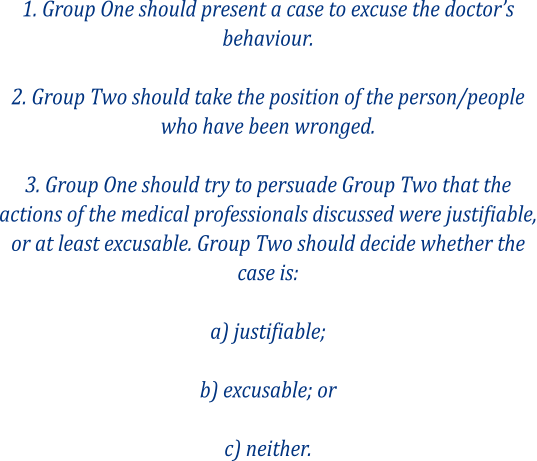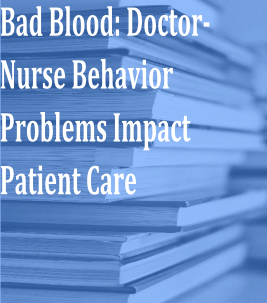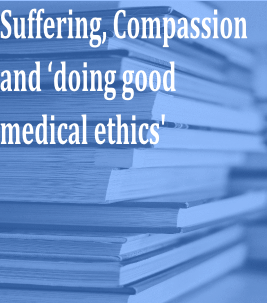
News stories about the medical profession often contain questions of character.

The news celebrates examples where doctors have demonstrated outstanding character, but also highlights where their character has been found to be wanting.
This section asks you to look at stories from the press relating to medicine and consider the questions of character contained within them. The examples given in this section are real life examples that have actually taken place in the medical profession.
The films and activities in this step will provide you with a platform to discuss character and virtues and their place in your professional and personal lives.
Watch this film about the most recent scandals and misconducts reported in medicine, presented by Dr. Sabena Jameel.


Download the following files for each case mentioned in the video above.
Looking at cases 1-7 only, download the activity and rank them in order of descending seriousness.
Using the activity template, work in small groups to identify the common themes of character, virtues and vices that are displayed in all 10 cases.
Source five more cases and discuss as above.

In small groups, prepare an argument either for or against the notion that ‘a doctor needs to be virtuous at all times‘.

If completing the course in class, create two groups to complete this activity. If completing the activity outside of class, work with a fellow learner and take opposing positions. Select one of the cases of doctors in the news from Activity 1. Create a debate where each group takes opposing sides:


Select a case from the 10 examples in Activity 1 where a doctor has behaved virtuously. On the discussion boards, debate which qualities of professional character you think the doctor has shown.
Do you think that all doctors should routinely behave in these ways?
Consider how easy it is for doctors to behave virtuously all of the time, and what challenges or b arriers may prevent or restrict this in practice.
arriers may prevent or restrict this in practice.
Discuss with your fellow learners.

Consider the news reports on cases 1-7 from Activity 1 as a comment by the journalist on the virtues that the doctors ‘should’ have displayed but which were lacking. Answer the following questions:
1. What impact may each report have on the notion of virtue in the medical profession among members of the general public?
2. Do cases 8-10 provide a counterbalance to the examples of vice in the profession, or are they simply examples of ‘good  people’ rather than ‘good doctors’?
people’ rather than ‘good doctors’?
Discuss with your fellow learners.

C. Johnson- This article examines the results of the 2009 Doctor-Nurse Behavior Survey and discover some of the reasons why the bad behaviors persist. | P. C. de Zulueta- ‘doing good medical ethics’ involves attending to both the biomedical and existential aspects of illness. For this, we need to bring in a phenomenological perspective to the clinical encounter, adopt a virtue-based ethic and resolve to re-evaluate the goals of medicine. | P. Toon- A Flourishing Practice? looks at the moral problems that currently seem prevalent in health care. It suggests how GPs, other health professionals and patients can overcome the ‘moral confusion’ of everyday life in the healthcare system. |


















